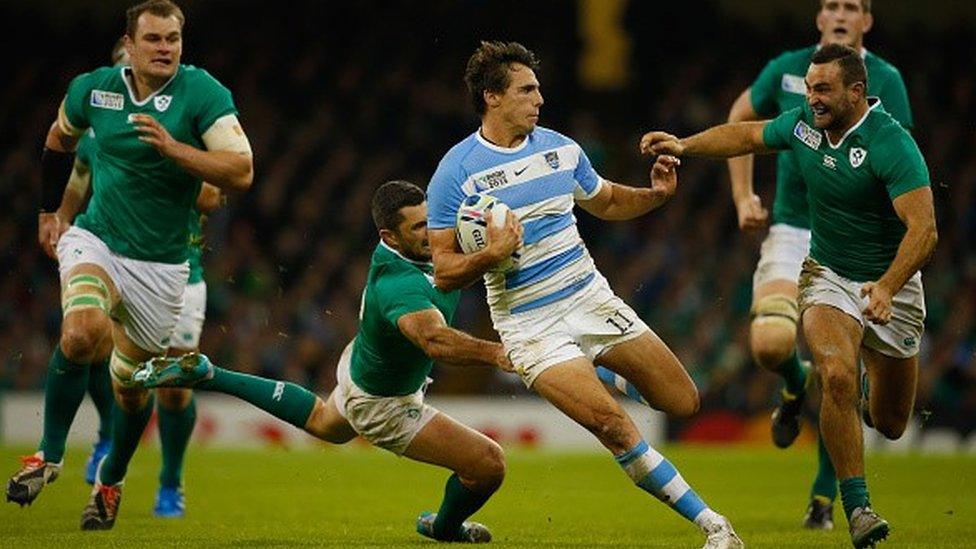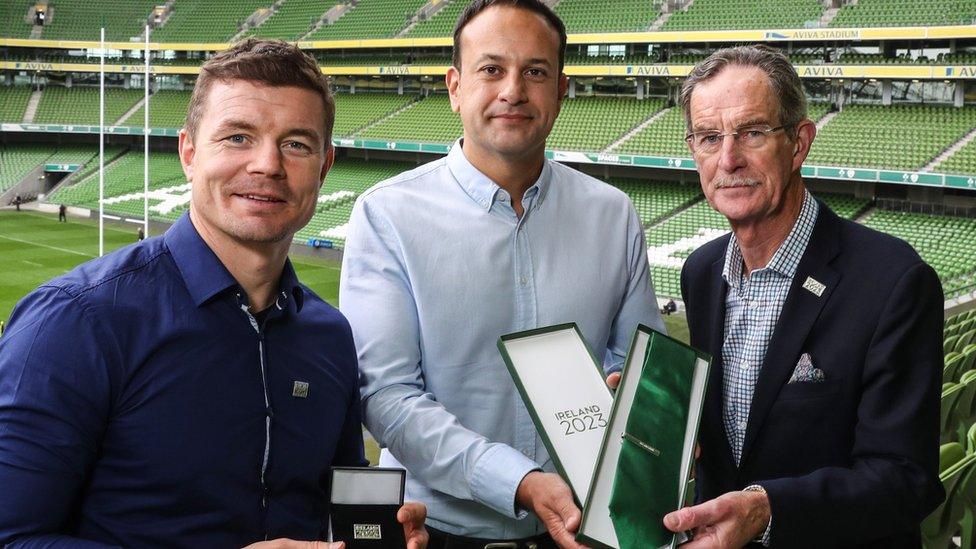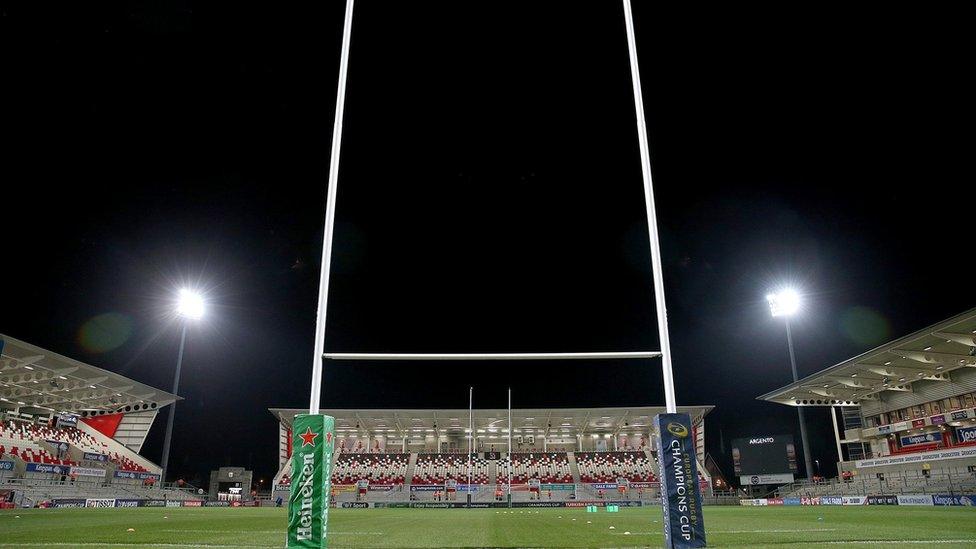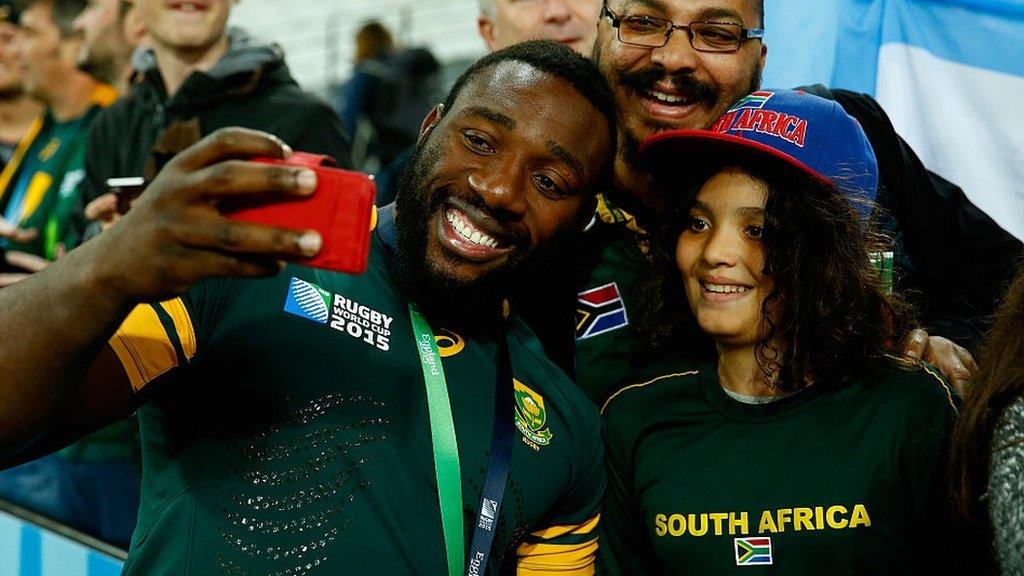2023 Rugby World Cup: Ireland can still win host vote, says bid chief
- Published

Ireland are hoping to host rugby union's best players in 2023
Ireland can still win the race to host the 2023 Rugby World Cup despite the being ranked last in an evaluation by the tournament's organising board, the bid's chairman has said.
Dick Spring has said the bid "can recover from this setback" and would work hard to win the 15 November vote.
The evaluation report by World Rugby was published on Tuesday.
It recommended that South Africa be awarded the tournament.
The report is considered an important influence on the World Rugby Council's final vote on who will host the tournament.

Brian O'Driscoll, Taoiseach Leo Varadkar and Dick Spring ahead of submitting the Irish bid in September
Evaluators judged each bid on five key criteria, with South Africa ranked the highest with 78.97%, France second with 75.88% and Ireland third with 72.25%.
The report highlighted stadiums and IT infrastructure at host venues as lagging behind in the Irish bid.
Provisional venues in Ireland's bid included Dublin's Croke Park, Kingspan Stadium in Belfast and Celtic Park in Londonderry.
Other proposed venues, including Casement Park in Belfast, require substantial redevelopment before 2023.
However, Mr Spring said Ireland was offering a "different type of tournament" than South Africa or France.

The Kingspan Stadium in Belfast is among the venues proposed in Ireland's 2023 Rugby World Cup bid
"If the rugby world authority wanted to have shiny new soccer stadia, which they have in France and South Africa in abundance, they should have made that clear to us three years ago," he told BBC Radio Ulster's Good Morning Ulster programme.
He added that by 2023 the bid will "have all the stadia required to have an excellent tournament" and that its promises "effectively are backed by a government guarantee".
Mr Spring, a former rugby international and Irish deputy prime minister, said he did not believe the competition to win the tournament was over.
"We will be having conversations and dialogue with all of the voting members of the council," he said.
"Many of them have said they will take the evaluation into account but they wouldn't be bound by it, they want to make their own decision for the future of rugby.
"The very outset of the evaluation report stated very boldly that all three countries could host a successful tournament, so we're working on that basis."
- Attribution
- Published31 October 2017
